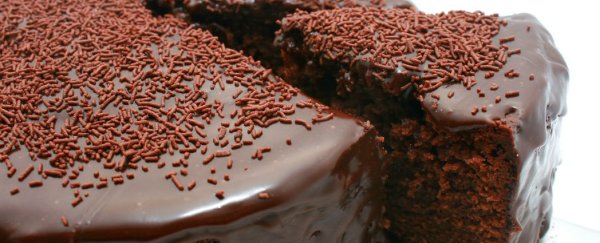Why are there certain days when we can't do anything until we get our coffee? Why do we not want chocolate, but need it, and what's with all those stories about the intense cravings pregnant women get for foods as diverse as spicy curries, pickles, tuna, ice cream, or all of those combined?
People often assume that cravings are important messages from our bodies warning us about nutrient deficiencies. For example, when you crave chocolate, rumour has it you're low in magnesium. But according to psychologist Eva Kemps from Flinders University in Adelaide, Australia, there's little truth to this, pointing out that many foods contain much more magnesium than chocolate, including spinach. "Funnily enough, people don't crave spinach," she told BBC Future.
While there are some rare circumstances where nutrient deficiencies cause cravings - for example, in a condition known as pica, pregnant women or children crave, and sometimes eat, odd things such as ice, dirt or sand - Kemps says cravings are generally more a matter of psychology than physiology. She says emotions and memories often cue desires for certain foods.
For "emotional eaters… it's more about being bored, anxious, stressed, or lonely and needing to eat something nice to feel better," she told the ABC.
This explains 3:30itis, or that inexplicable need for sweets that strikes so many of us when the afternoon hits. "It's more about wanting than needing," says Kemps, adding that cravings can be tougher for women because of their menstrual cycles.
Kemps and her colleague Marika Tiggemann decided to investigate how we end up with a food craving. Interviewing 130 subjects, they found that the visual sense is more important in how we feel and develop cravings than sound or touch. Imagined taste and smell were obviously important determinants as well.
From this, they found they could reduce cravings by manipulating what a participant saw, regardless of whether the visual stimulus was engrossing (e.g. playing Tetris) or not (e.g. staring at TV static). "The visual interference should give you an opportunity to reduce any sort of imagery you might have from the food that you are wanting or craving," she said. The results were published in Current Directions in Psychological Science.
Now they're trying to see if they can stop cravings in their tracks, using visual stimulus before the desire for food is fully developed.
Kemps hopes this will help people who have disordered eating; where people binge eat and then fast, take laxatives or vomit to compensate. "We need to do something to try and help these people cope with their cravings because for these people cravings are the starting point of a long chain of events that leads to problem behaviours," she told the ABC.
More generally though, Kemp says it's best if most of us satisfy our cravings. "It's actually better to let yourself have it," she adds. "The stronger the craving's going to become, then you're going to be fixated on it."
